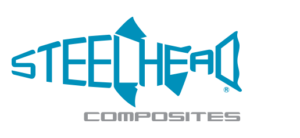Pressure Vessel Certification FAQs
“What certification do I need?”
This is one of the most common inquiries Steelhead Composites receives from customers…and it’s not a simple question to answer. The regulatory framework surrounding pressure vessels is multifaceted and overwhelming. Add on the additional complexities of industry standards, local jurisdictions and insurance companies, and one can quickly get lost in a web of red tape. Luckily, Steelhead Composites has dedicated compliance specialists on staff whose job it is to navigate the red tape and arrive at a certification solution that meets the customer’s requirements. These specialists foster and maintain relationships with certification authorities worldwide and can manage the entire certification program for the customer.
Below are the top 7 questions the compliance specialists commonly field:
- Do I need a certified pressure vessel?
- It depends on many factors including the region where the pressure vessel will be operated, the industry in which it is used, the specific application, the volume and pressure rating and a host of others (i.e. insurance companies, internal company policies). It is also quite common for a single pressure vessel design to require multiple certifications based on the above criteria. Moreover, it’s also common for certain applications not to require any certification at all.
- What are common certifications for pressure vessels in the United States?
- The common certifications in the United States can be segregated into 2 categories; Regulatory and Industry Standards. The specific application of the pressure vessel defines which certification is required. Below are several examples:
- Regulatory: US DOT, US DOT Special Permit, UN/ISO, FMVSS 304
- Industry Standard: ASME BPVC, NGV 2, AIAA S-081, ABS, DNV
- What are common certifications for pressure vessels outside the United States?
- It depends on the specific regulations of the country. Some foreign jurisdictions will accept pressure vessels certified by an authority inside the United States. However, many have their own certifications. Below are a few common examples:
- EU Countries: CE Mark, TPED (pi mark), EC 79
- Canada: TC, CRN, UN/ISO
- How can I determine which certifications are required?
- Steelhead Composites can assist in identifying the required certifications based on the customer’s unique application. However, these are usually limited to regulatory and industry standard certifications. To expedite the discovery process, the customer should have a firm understanding of the physical requirements of the pressure vessel (volume and pressure), the location of use (country and regulatory jurisdiction) and specific application. If certification requirements are derived from 3rd parties (ex. insurance companies), the customer should investigate internally and provide information to Steelhead as applicable.
- How much do certifications cost?
- It depends on the type of certification required. Some pressure vessel certifications are simply design reviews while others require destructive testing of sample vessels. Some of the newest pressure vessels codes require complex destructive testing and the costs can increase dramatically.
- What if my organization requires pressure vessel qualification testing outside the scope of the design standard?
- Steelhead’s in-house testing equipment can accommodate many unique destructive testing applications. Steelhead also works closely with testing facilities throughout the world and can manage complex testing scenarios.
- What is the difference between a design standard and a certification?
- A design standard is an accepted method to design a pressure vessel around a set of given requirements. Usually, these standards are published by internationally recognized organizations such as the International Standards Organization (ISO) and the America Society for Mechanical Engineers (ASME). A certification involves a 3rd party organization who reviews the design calculations for the pressure vessel, witnesses any destructive qualification testing required and issues a compliance statement. Most certifications require that a recognized design standard be followed.
- It depends on the specific regulations of the country. Some foreign jurisdictions will accept pressure vessels certified by an authority inside the United States. However, many have their own certifications. Below are a few common examples:
- The common certifications in the United States can be segregated into 2 categories; Regulatory and Industry Standards. The specific application of the pressure vessel defines which certification is required. Below are several examples:
It’s important to understand not every pressure vessel and application has a clear-cut path to certification. For further information about certifications or to learn how the compliance specialists can assist in your next program, please contact Steelhead Composites.



